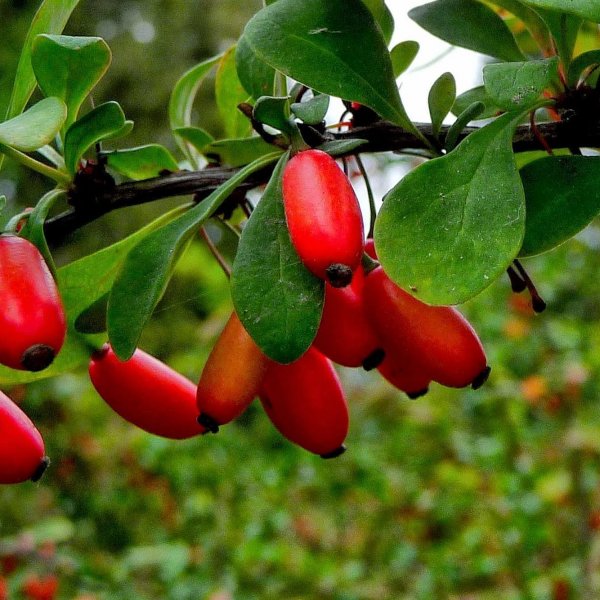Berberis Vulgaris, commonly known as Berberis Vulg or Barberry, stands as a notable homeopathic remedy renowned for its efficacy in addressing kidney and digestive ailments. Derived from the Berberis Vulgaris plant, this remedy has captured the attention of practitioners and patients alike for its unique healing properties. In this scholarly exploration, we will delve into the key characteristics of Berberis Vulg, its historical context, geographical origins, and its common indications and benefits. Join us on this journey as we uncover the therapeutic potential of Berberis Vulg in the realm of homeopathy.

Key Characteristics of Berberis Vulgaris:
- Kidney and Urinary Symptoms: Berberis Vulg is particularly suitable for treating kidney and urinary disorders, with symptoms such as burning, cutting pains, and discomfort during urination.
- Digestive Distress: This remedy exhibits a specific affinity for addressing digestive complaints, including gastritis, colic, and abdominal pain.
- Radiating Pains: Berberis Vulg is known for its efficacy in alleviating pains that radiate from the affected area to other parts of the body, such as the back and legs.
- Discolored Urine: Individuals in need of Berberis Vulg may present with dark, yellow, or reddish urine, indicative of kidney involvement.
Historical Context: Berberis Vulg has a rich historical background within the domain of homeopathy. Its usage dates back to the early days of homeopathic practice, where it was carefully observed and recorded for its effects on patients. Over time, Berberis Vulg gained recognition and appreciation for its remarkable ability to address kidney and digestive ailments. Its historical significance and proven effectiveness have solidified its place as a valuable remedy in the homeopathic Materia Medica.
Geographical Context: Berberis Vulg is native to various regions across Europe, Asia, and North Africa. Thriving in temperate climates, it is commonly found in woodlands, hillsides, and rocky areas. Historically, the Berberis Vulg plant has been used in traditional medicine practices in these regions to address various health concerns, including kidney and gastrointestinal issues. The yellow flowers and bright red berries of Berberis Vulg have contributed to its popularity as an ornamental shrub in gardens worldwide.

Common Indications and Benefits: Berberis Vulg’s therapeutic versatility translates into manifold indications and benefits:
- Kidney and Urinary Disorders: The remedy offers effective relief for kidney stones, urinary tract infections, and associated discomfort.
- Digestive Complaints: Berberis Vulg aids in soothing gastritis, colic, and abdominal pain, promoting digestive comfort.
- Back and Leg Pains: This remedy addresses radiating pains from the affected area to the back and legs, providing relief.
- Liver and Gallbladder Support: Berberis Vulg supports liver and gallbladder function, particularly in cases of gallstones and biliary colic.
Berberis Vulgaris (Berberis Vulg), derived from the Berberis Vulgaris plant, emerges as a notable and invaluable homeopathic remedy in addressing kidney and digestive ailments. With its deep-rooted historical context and natural geographical origins, Berberis Vulg has earned its reputation as a potent tool in the homeopathic healing repertoire. Consultation with a qualified practitioner is essential for personalized treatment and accurate assessment of individual symptoms. Embrace the healing prowess of this botanical gem as it continues to offer gentle yet effective solutions for kidney and digestive concerns, exemplifying the timeless efficacy of homeopathy.
